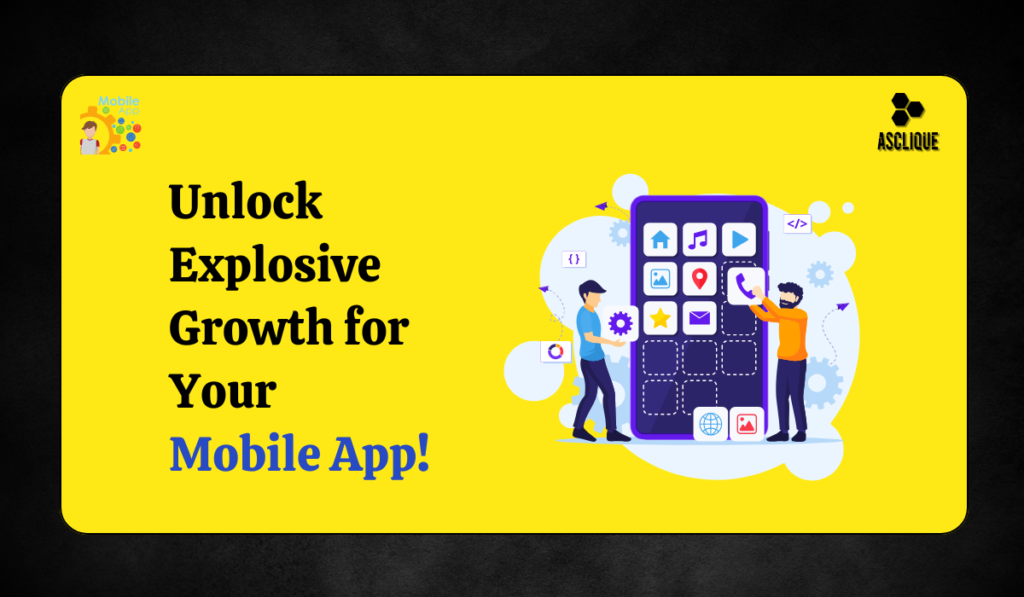Mobile applications dominate our everyday lives, working on entertainment, education, purchases, and productivity. However, opening up a successful mobile app business is much more than just creating an app. It demands a relentless yet well-focused approach towards developing an audience, retaining those users, and scaling up revenue. Enter growth marketing for mobile app business—a data-driven, experimental, and holistic approach to scaling.
This article explores the essence of growth marketing for mobile app business , why it’s essential, and actionable strategies to implement it effectively.
Introduction to Growth Marketing

Growth marketing is a step ahead of traditional marketing. It’s no longer about getting users; it’s about optimizing the entire user journey-from awareness to conversion, retention, and advocacy. The sum total of every interaction on the user journey adds value to both the user and the business.
While non-growth marketing can concentrate on reach or impressions, growth marketing for mobile app business finds much more value in points through metrics and iterative testing. It combines different disciplines, ranging from analytics to product development and customer feedback, to build and perfect strategies.
Growth Marketing for Mobile app Business is critical because:
- The mobile app market is very competitive.
- User retention rates are low without continuous engagement strategies.
- Success depends upon metrics such as active users, lifetime value, and churn rate.
Key Growth Marketing Strategies for Mobile Apps
Achievement of Acquisition Funnel
The starting point for any growth strategy is acquisition. However, in mobile app marketing, the correct user acquisition is important.
Tactics for Acquisition:
- App Store Optimization: This tactic refers to optimizing app titles and descriptions while also improving the use of visuals such as screenshots for better discovery and downloads. Use relevant keywords that appeal to interest.
- Paid Campaigns: Services such as Google Ads, Facebook, and TikTok enable highly targeted campaigns to draw in potential users. A/B testing ad creatives will help you maximize ad performance.
- Content Marketing: Blogs, videos, and podcasts can showcase your app as a solution to problems that users face, which organically attracts interest.
- Collaborations and Partnerships: Collaborate with influencers, bloggers, or complementary apps to amplify your app’s reach.
Engaging and Activating New Users
User acquisition is only the first step. Activation—where users experience the value of your app—is a key milestone in growth marketing for mobile app business.
Activation Tips
- Streamline Onboarding: Make the user onboarding process as painless as possible. Allow users to experience the essential features of the app through interactive walkthroughs or tutorials.
- Personalize It: Use location, behavior, or preferences in the data to customize the app experience. For example, a fitness app could suggest workout plans based on a user’s goals.
- Gamification: Highlightable progress, accolades, or rewards can encourage users to engage with your app.
Retention Tactics for Long-term Engagement
Retention is one of the toughest yet most rewarding components of growth marketing. Users retained are more likely to have in-app purchases, recommend others, and contribute to increased LTV.
Effective Retention Tactics:
- Push notifications: The push notifications in the right time frame and relevance can activate dormant users to open the application. At the same time, don’t be too intrusive on users’ personal space but try to simulate those based on user behavior.
- Regular Upgrades: Fix bugs, introduce new features, refresh designs on your application.
- Rebates, free trials, loyalty programs, etc.
In-app communities enable the users to interact within your app through forums, chatrooms, or group activities. The example of such in-app communities thriving is seen with gaming applications. TheSpark Shop Gaming Wireless Bluetooth Earbuds aren’t just another accessory; they’re an essential tool for any serious gamer.
Referral Generation
Referrals are one of the lowest-cost acquisition methods for new users. Word-of-mouth marketing works most powerfully in mobile apps as users tend to believe more in recommendations from friends or family.
Creating a Referral Engine
- Incentivized Referrals: Provide rewards for inviting others by the users. For example, Uber’s early success story depended upon referral bonuses for both new and existing users.
- Easy Sharing: Use simple sharing options that allow your users to share your app easily
- Social Proof: Display reviews, ratings or accomplishments to increase the trust associated with your app among your target customers
Monetization and Revenue Growth
The user acquisition and retention are integral parts but monetization strategies make the app profitable. Growth marketing for mobile app business determines the right monetization strategy aligned with the pattern of users.
Monetization Models:
- Freemium Model: The use of free service with chargeable premium service or features.
- In-app purchases: Games are primarily applied for the purchase of virtual products or upgrades.
- Subscription: Great for applications that provide ongoing value, such as fitness or productivity applications.
- Advertising: Ad placements can generate revenue without distracting from the user experience.
The Application of Data Analytics
Analytics is one of the primary cornerstones of growth marketing. Keeping track of and interpreting user behavior will allow you to refine your strategies and make data-driven decisions.
Mobile App Metrics:
- Churn Rate: % of users who leave the app in a given period.
- DAU/MAU: It is known as user engagement in terms of daily and monthly.
- Customer Acquisition Cost (CAC): The cost to gain one new customer
- Lifetime Value (LTV): Revenue generated per user for a lifetime basis
- Retention Rate: Percentage of users remaining in the app after a given period.
Analytics Tools:
Google Analytics for Firebase, Mixpanel, or Amplitude are the best tools to know more about user behavior and, consequently, growth opportunities.
Mobile App Growth Marketing Trends
The world of a mobile app is a fast-paced one; thus, growth marketers should adjust to the growing trends they encounter there. These include:
- AI and ML: Employ AI in providing the users with personalized recommendations allied with predictive analytics to enhance retention.
- Voice and Visual Search: Optimize your app for voice and image searches as these will become increasingly popular.
- Super Apps: Apps containing numerous functionalities, such as WeChat, are the future. Diversify your features
- Sustainability: Create or partner with those demonstrating eco-friendly practices to appeal to sustainable consumers
Shared Obstacles and How to Tackle Them
Growth marketing attracts large potential returns in acquisition. Challenges include high user acquisition costs, competition within the app store, and users dropping their apps.
Solutions
- Keep and grow LTV, not just acquire.
- Investment in UX to be different.
- Test and optimize everything within the marketing funnel from creatives to a price model that is relevant.
Conclusion
Scaling a mobile app business in today’s competitive landscape defines the meaning of growth marketing. All of it revolves around focusing on one: acquisition, retention, referrals, and data-driven decision-making, taking you off to real sustainable success. Having launched some new applications before or optimizing existing ones, the strategies of growth marketing will allow you to get ahead of the game and even build your loyal user base.
Embracing growth marketing for mobile app business ensures your app not only grows in numbers but also delivers lasting value to users globally.
FAQs
What is growth marketing?
Growth marketing focuses on optimizing the entire user journey, using data-driven strategies to enhance acquisition, retention, and revenue, unlike traditional marketing that prioritizes brand awareness.
How does growth marketing boost retention?
It improves retention through personalized experiences, streamlined onboarding, push notifications, and loyalty programs, ensuring users stay engaged.
What metrics are key for growth marketing success?
Important metrics include retention rate, churn rate, lifetime value (LTV), daily/monthly active users (DAU/MAU), and customer acquisition cost (CAC).
Why is App Store Optimization (ASO) important?
ASO boosts app visibility in stores by optimizing titles, descriptions, keywords, and visuals, driving more organic downloads.

